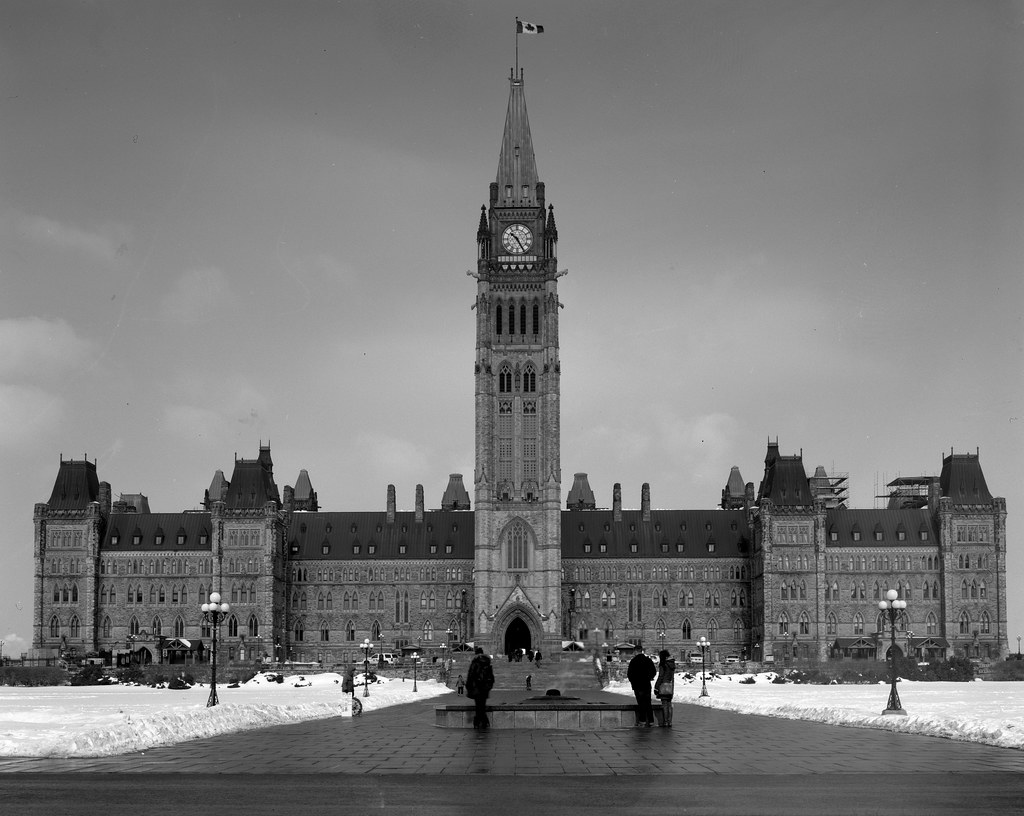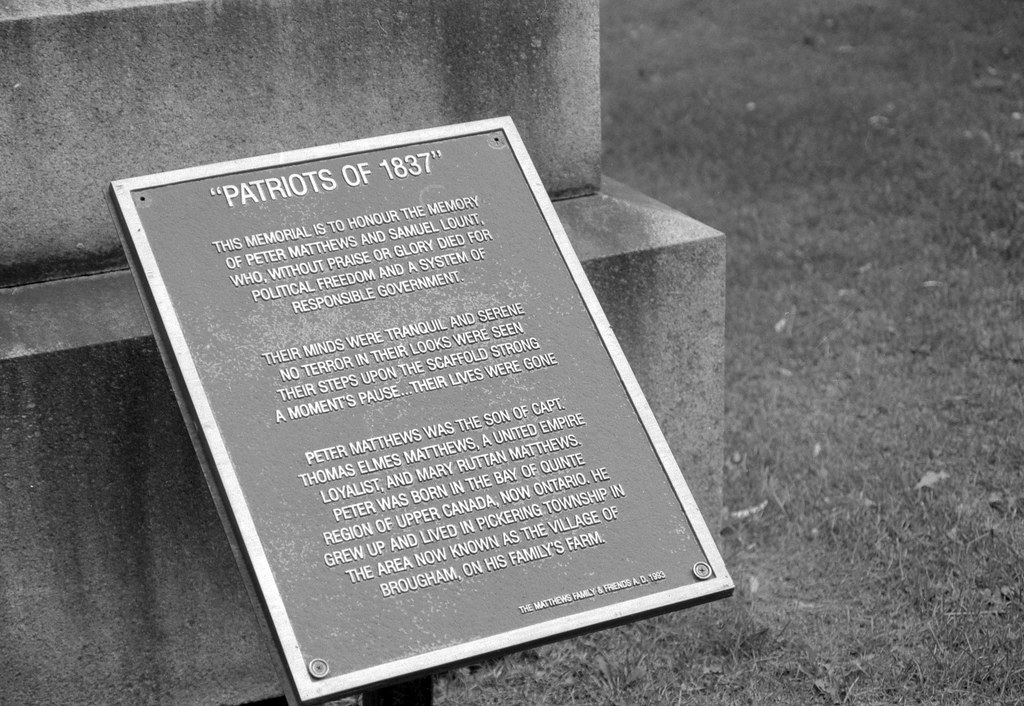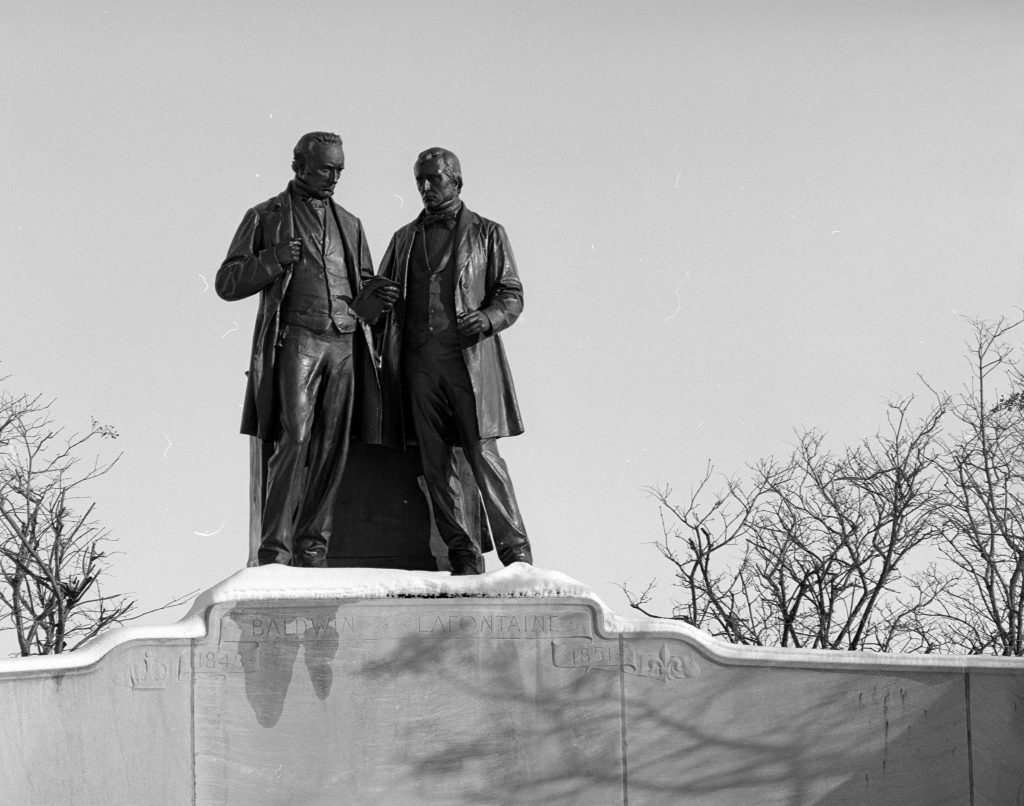Out of all the projects I have done in the past, this is the only one I can say has been a long time coming. But when I look back at how long it took me to prepare this project from conception to final project, it has not been that long. I mean I spent five years working on my War of 1812 project, but that was a logistical mess from the start. Acts of Confederation has been a slow burn, I started working on the framework in 2017, completed most of the writing in 2018 while collecting all but a single final roll of film that same year. But I think it was worth the effort. The reason for all this delay and secrecy is because of one singular reason. Unlike the War of 1812 which could be pretty easily segmented and introduced in a non-chronological order, the to understand the lead up to Canadian Confederation and Dominionhood in 1867 you need to approach it chronologically. There’s no escaping the timeline.

Pacemaker Crown Graphic – Fuji Fujinon-W 1:5.6/125 – Kodak Plus-X Pan @ ASA-125 – Kodak Microdol-X (Stock) 8:00 @ 20C
In these next fifty-two weeks, we’ll be journeying from the founding of Upper Canada in 1791, discussing the impacts of the Loyalists, the American Revolution, the 1791 Constitution Act, Fugitive Slaves, and the War of 1812. All these leading up to the centralisation of power in the Family Compact in the Post-War era, to the rise of reform and radical reform into open revolt and failed rebellion. Discussing the results of that rebellion, and the growth of the moderate centre to address the conservative stranglehold. And the power of restraint and moderation to effect lasting change. Also the expansion of Upper Canada through the Canada Company, the first two Welland Canals, and the Rideau Canal. Giving rise to Telegraph and Railroads to transform from a backwater to a modern province of the British Empire. And before you start, yes this project is going to get political. It can’t not with the subject matter. And in working through the project, I could not help but look at my political views in the process. And I promise right here that I will not bash either side of the political spectrum because I now firmly believe in unity between both sides to effect lasting change. I will, however, speak on the dangers of extremism. Because I now have seen the dangers of that in our history. And we carry over into the rise of Responsible Government, the American Civil War and Fenian Raids all leading up to the logical end, Confederation in 1867 and the uniquely Canadian government it created.

Nikon F90 – AF Nikkor 28-105mm 1:3.5-4.5D – Kodak TMax 100 @ ASA-100 – Kodak HC-110 Dil. B 6:00 @ 20C
For me, this was all new history. Sure I had touched on it throughout Elementary and Middle Schools. But in no major way, the Upper Canada Rebellion was tossed off as a farmer’s revolt, names like Robert Baldwin and Louis LaFontaine were forgotten. I mean, Robert Baldwin for me was another elementary school in my hometown. And yes, it is named for one of the fathers of Responsible Government. The content is already starting to be posted, at least the images on Flickr, and I have a pile of Blog posts waiting in the wings all to post in chronological order so that each post builds on the one before. And as I mentioned, I planned it all out to have a year’s worth of content.

Mamiya m645 – Mamiya-Sekor C 150mm 1:3.5 N – Ilford HP5+ @ ASA-200 – Pyrocat-HD (1+1+100) 9:00 @ 20C
So now, I leave you here, the first part will go up next week, and we’ll go back to 1791…the avalanche has already started, it is too late for the pebbles to vote.